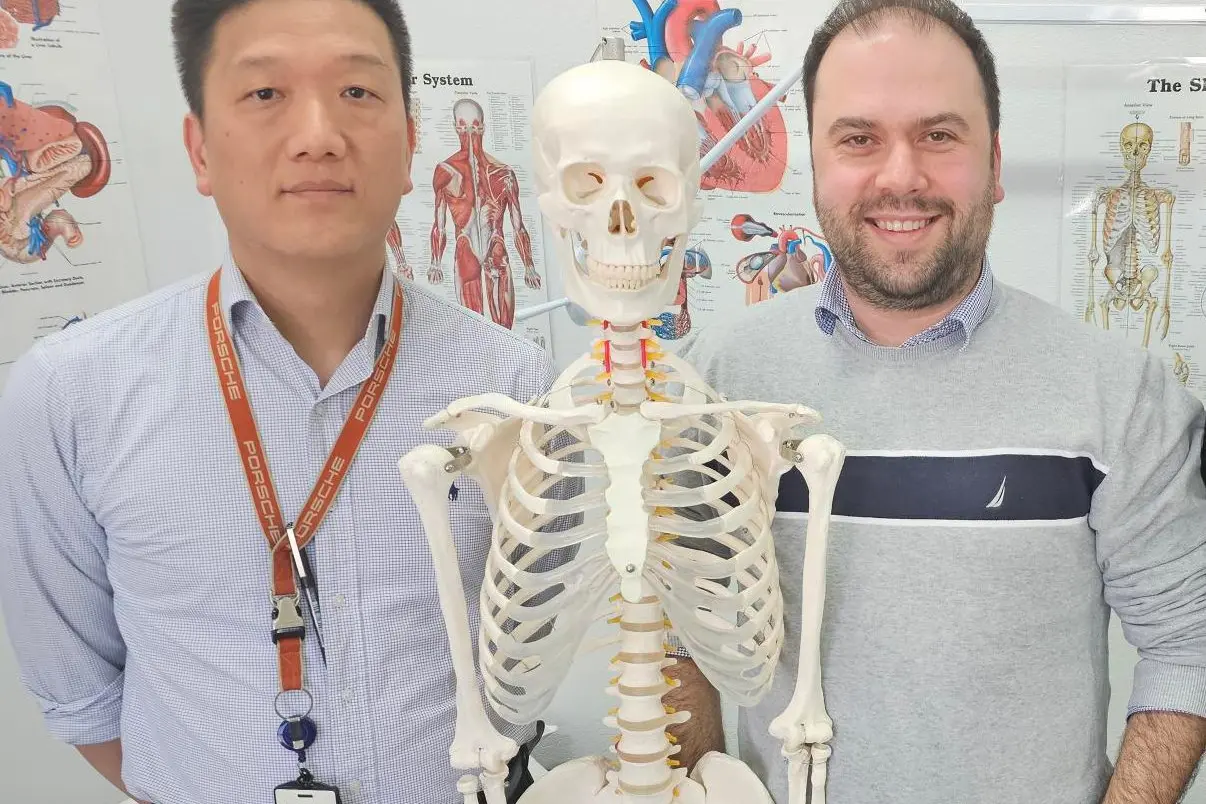PHOTO
LIMITED mental health services, stigma and a lack of resources have left Snowy Monaro residents with delayed mental health diagnosis and poor chronic disease management, according to Cooma general practitioner, Dr Domonic Manassa.
Dr Manassa said mental health was a pressing issue in rural communities generally and has called for a united effort from governments, healthcare providers and communities to overcome it.
"A united effort is needed to bridge the healthcare gap between rural and urban areas, ensuring that mental health care is accessible to all," he said.
Dr Manassa said to improve rural healthcare, priority had to be placed on expanding access to professionals, integrating mental health services, and utilising technology like telehealth.
"As a doctor with experience in both urban and rural healthcare settings, I have witnessed the unique challenges faced by rural communities - especially when it comes to accessing healthcare services," he said.
"After training in Sydney, I moved to the Snowy Monaro region, where I was inspired by the resilience and sense of community.
"Establishing my practice in Cooma has allowed me to create a space for healthcare where I can make a meaningful impact, particularly in mental health care, which is often underrepresented in rural areas."
Currently, people seeking mental health care can access private psychologists, many of whom have long waiting lists, or the Cooma hospital.
A Southern NSW Local Health District (SNSWLHD) spokesperson said SNSWLHD was committed to ensuring consumers can access safe, high-quality mental health care in the Snowy Monaro and across the district.
"Cooma Community Mental Health offers comprehensive, tailored mental health services to support individuals across all stages of life, ensuring access to essential care and treatment within the community and beyond," the spokesperson said.
"Multidisciplinary teams (psychiatrists, nurses, occupational therapists, social workers, psychologists and counsellors) provide adult, older persons as well as child and adolescent mental health services.
"Referrals are accepted through the Mental Health Line (1800 011 511) or individuals can attend the Cooma Community Mental Health Centre during business hours of Monday to Friday 08:30am – 5pm. General practitioners also have access to a direct referral phone line."
Mental health services are accessible at Cooma Community Mental Health, Jindabyne One and the Bombala Multipurpose Service either face to face or via telehealth.
Dr Manassa said access to healthcare in rural regions was limited by long travel distances, a shortage of healthcare professionals, and a lack of specialists.
"These barriers, compounded by socioeconomic factors such as low income and isolation, significantly affect health outcomes," he said.
"This leads to delayed diagnoses, poor chronic disease management, and, tragically, higher suicide rates.
"Mental health is an especially pressing issue in rural communities, where stigma, limited services, and a lack of resources often exacerbate the situation."
Dr Manassa said rural healthcare providers, especially GPs, played a pivotal role in addressing mental health issues.
"They offer initial treatment, continuous support, and telehealth options - helping to break down stigma and encouraging open discussions in tight-knit communities," he said.
"Suicide rates in rural areas are notably higher than in urban centres. However, rural GPs can intervene early, provide ongoing care, and develop trusting relationships with patients - ultimately saving lives through early screenings and regular follow-ups."
Dr Manassa said he was personally passionate about mental health and had therefore been pleased to welcome registered psychologist Jade to his team at Monaro Medical Practice.
"Jade has experience working in community mental health and education, supporting clients across the lifespan with a variety of presentations and is committed to providing a therapeutic space where clients feel safe, supported, and empowered to make meaningful change," he said.
"Her presence enhances our capacity to support individuals through mental health advocacy, making a significant difference in the lives of many.”
The Mental Health Line on 1800 011 511 is a free service operating 24 hours a day, seven days a week and is staffed by trained mental health professionals who offer mental health advice, and referrals to local mental health services.
Support is also available via:
- Lifeline (24/7) support 13 11 14
- Beyond Blue (24/7) for mental health advice and support 1300 22 46 36
- Kids helpline (24/7) support for children or young adults 1800 55 1800
- Suicide Call Back Service support 1300 659 467
- 13YARN (24/7) support for Aboriginal and Torres Strait Islander people 13 92 76
- Transcultural Mental Health Line call: 1800 648 911





